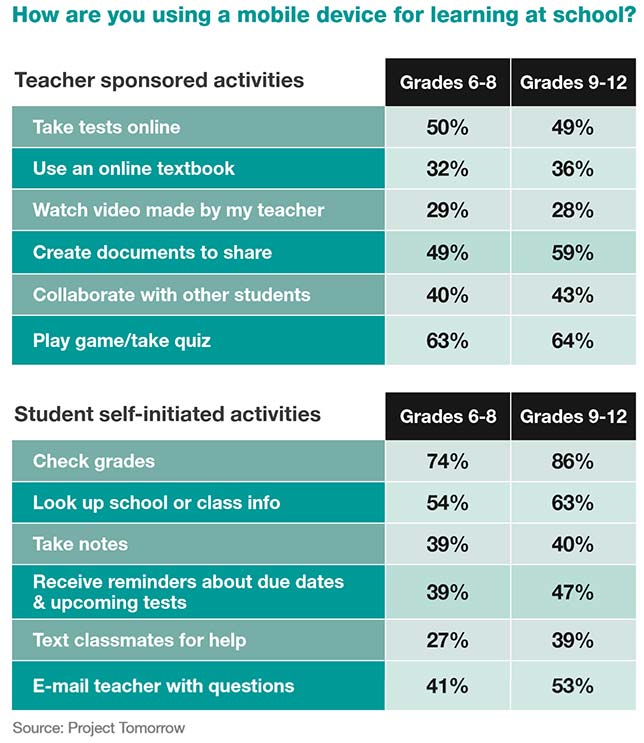Chromebooks or Smartphones? 1-to-1 or BYOD? Why Not Both?
As many high schoolers are using their personal devices in class as school-issued Chromebooks. According to new data released this fall, more than half — 58 percent — reported using their personal devices in the classroom for school-related activities; a similar percentage (56 percent) are using school-issued Chromebooks. Only 9 percent are using school-issued tablets, and another 9 percent are using school-issued traditional laptops. More than a quarter — 27 percent —rely on their school library for device access.
The data were released as part of a Congressional briefing by Project Tomorrow, compiled from information collected for the 2016 Speak Up Research Project for Digital Learning, which included input from more than 500,000 K-12 students, teachers, administrators and parents. More than 435,000 participants were students.

Overall, 90 percent of high schoolers have smartphones, but those aren't the only devices to which they have personal access outside of school. A full 56 percent have tablets, and another 44 percent have personal access to Chromebooks. But just 9 percent reported having personal access to a traditional laptop.
Only 19 percent of high school and middle school students have access to a school-issued mobile device outside of school.
Meanwhile, teachers cited multiple benefits to the use of multiple devices in the classroom, including:
- Increased student engagement (cited by 75 percent of teachers);
- College and career prep for students (65 percent);
- Increased access to online materials (51 percent);
- Personalized learning (49 percent); and
- Collaboration (48 percent).
One-third of teachers who participated in the 2016 survey (of which there were more than 38,000) said they'd like more professional development covering the use of mobile devices for teaching.
The 2017 Speak Up Survey is open now through Jan. 19, 2018 at tomorrow.org/speakup.